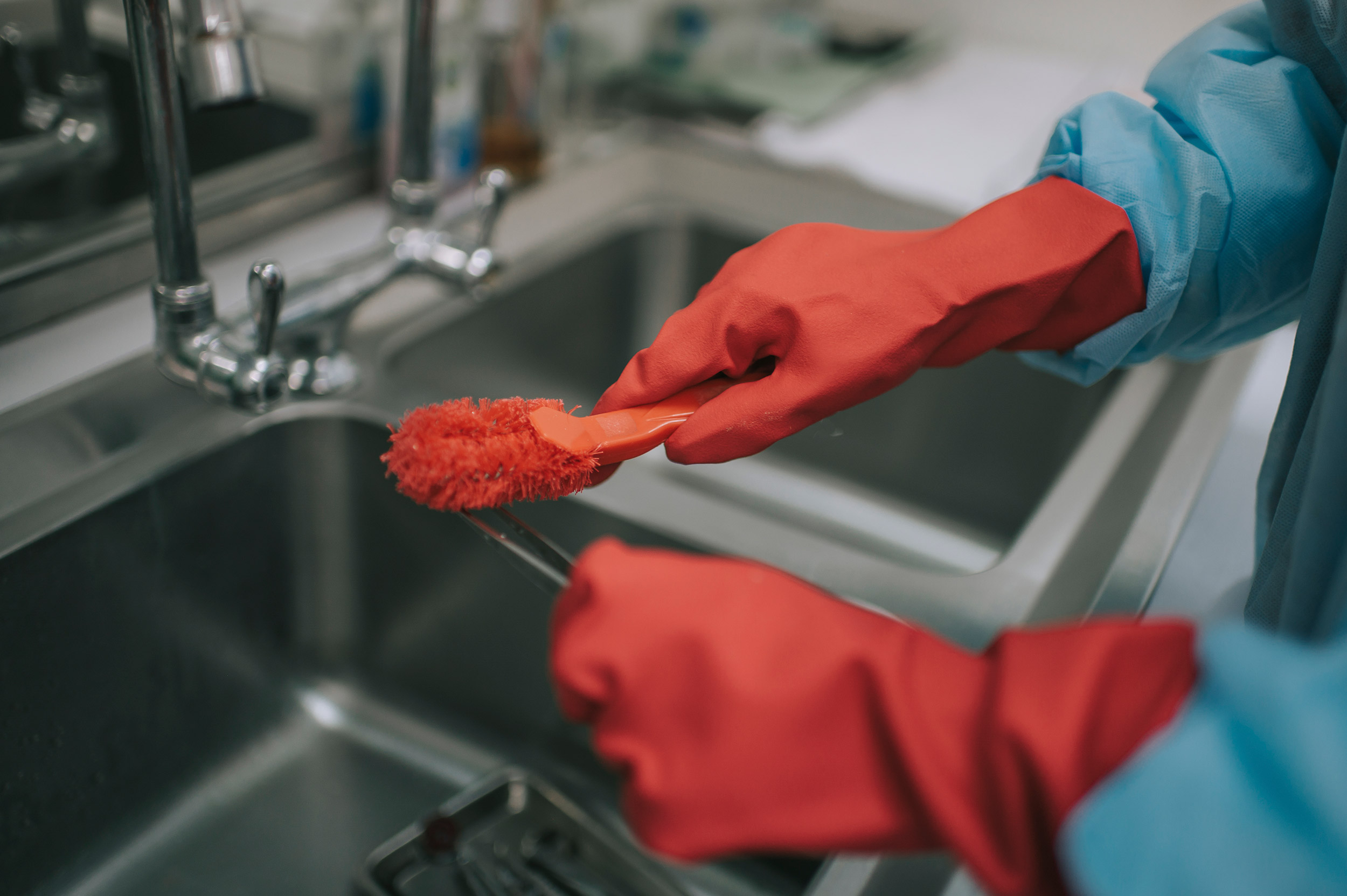
The work to prevent the transmission of COVID-19 extends to the reprocessing suite.
“The presence of gastrointestinal pathogens found in bronchoscopes and [bronchoalveolar lavage] samples suggests the possibility of cross-contamination caused by intermingling bronchoscopes and gastrointestinal endoscopes during reprocessing,” according to Cori L. Ofstead, an epidemiologist with more than 25 years of experience.
This is of concern now because multiple types of endoscopes – including bronchoscopes, laryngoscopes, and gastrointestinal scopes – may be exposed to severe acute respiratory syndrome coronavirus 2 (SARS-CoV-2), the disease that causes COVID-19.
Hospitals often reprocess all endoscopes in the same suite.
“Thus, extreme care must be taken to minimize cross-contamination during all endoscope reprocessing,” Ofstead writes.
Gastrointestinal endoscopes can be exposed to SARS-CoV-2 because, though a respiratory illness, limited research suggests COVID-19 symptoms may include vomiting and diarrhea. Studies suggest fecal oral transmission of the virus is possible.
Single-use bronchoscopes would significantly reduce the risk of cross-contamination that may occur in reprocessing, Ofstead writes in her recent paper, “Potential impact of contaminated bronchoscopes on novel coronavirus disease (COVID-19) patients.”
“Reprocessing effectiveness has not been evaluated in epidemic settings, and research is needed to confirm that COVID-19, influenza viruses, and other pathogens are eliminated in these settings,” she adds.
If single-use endoscopes are not available, Ofstead argues, strictly adhering to reprocessing protocol is vital.
Recent guidelines from several gastrointestinal societies state standard reprocessing procedures should be enough to eliminate the threat of SARS-CoV-2 transmission to future patients.
“Based on available evidence, standard manual cleaning followed by high-level disinfection (HLD) should be effective at eradicating SARS-CoV-2,” the guidelines state. “At this time no changes to the reprocessing of GI endoscopes are recommended.”
The American Society of Gastroenterology, Society of Gastroenterology Nurses and Associates, the American College of Gastroenterology, the American Gastroenterological Association, the American Society of Colon and Rectal Surgeons, and the Society of American Gastrointestinal and Endoscopic Surgeons released the reprocessing guidelines in April.
However, the societies suggest institutions take special precautions to protect reprocessing staff. These steps include:
The society guidelines, however, do not articulate a risk of cross-contamination between endoscopes in reprocessing.
For more information about reprocessing and protecting patients and staff from disease transmission, Ofstead has produced an on-demand webinar, “Risks and Best Practices for Bronchoscope Use on COVID-19 Patients.”


